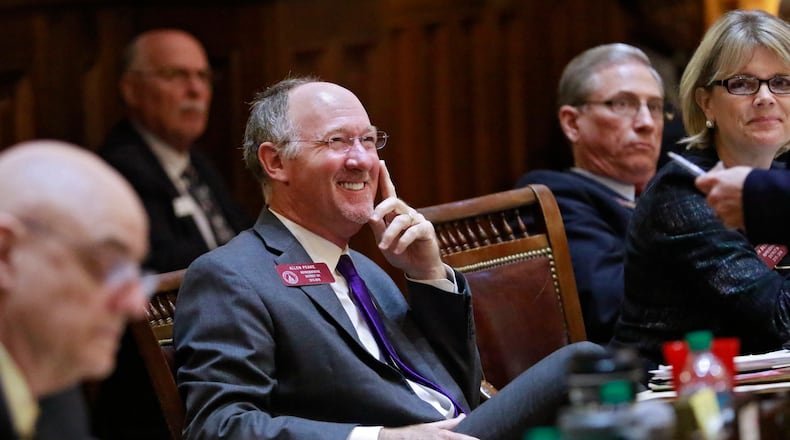State Rep. Allen Peake sounded an exasperated note in a dispatch to his middle Georgia constituents over the weekend, saying it's time once and for all for Democrats and Republicans to break the legislative logjam.
“Republicans will not get all they want. Democrats will not be happy with all the final details,” wrote the Macon Republican, perhaps best known as the godfather of Georgia's medical marijuana program. “But it’s time we find the common ground, compromise on the differences and find an answer regarding healthcare and other issues that works in the real world.”
So we called him up to elaborate. The main question: Is it time to revisit the onerous debate over redistricting? After all, some Georgia lawmakers all but admit gerrymandering has kept them in office, even as proposals with limited bipartisan support to overhaul district lines in a nonpartisan fashion languish.
Peake was frank, saying it’s probably “unrealistic” to propose a new way to draw districts, while also acknowledging that the proliferation of safe seats that favor one party or the other inhibits bipartisan work.
"Of the 14 districts in Georgia, maybe one is competitive. They've been redistricted to be safe Republicans and safe Democrats," said Peake. "Imagine how different we would govern if every district was split. We would have this instant polarization go away and we'd look at each other differently, work across party lines more."
So what’s next? Will he support a proposal to rewrite the process? Peake’s not sure yet, but count him among the converted.
“At the federal level, there’s a greater need to look at the redistricting so the districts aren’t so polarized. That’s what’s causing the gridlock in Congress,” he said. “Is it realistic to think that will ever change? Probably not. But it’s clear that’s what has caused the polarization.”
Update: For a counterpoint, we'll go to Peake's GOP colleague, state Rep. Chuck Efstration, who wrote a lengthy piece on Facebook outlining his view:
Modern federal courts are also victims of this polarization. Experienced attorneys are able to predict the best venue for a desired outcome. Only recently, federal trial level judges issued opinions challenging presidential authority with national implications, impacting areas outside of their respective circuits. These judges do not sit in gerrymandered judicial districts or run in elections, yet the partisan perception continues.
About the Author
The Latest
Featured




